Global: Books
Further resources, if available, can be found in our full bibliography.
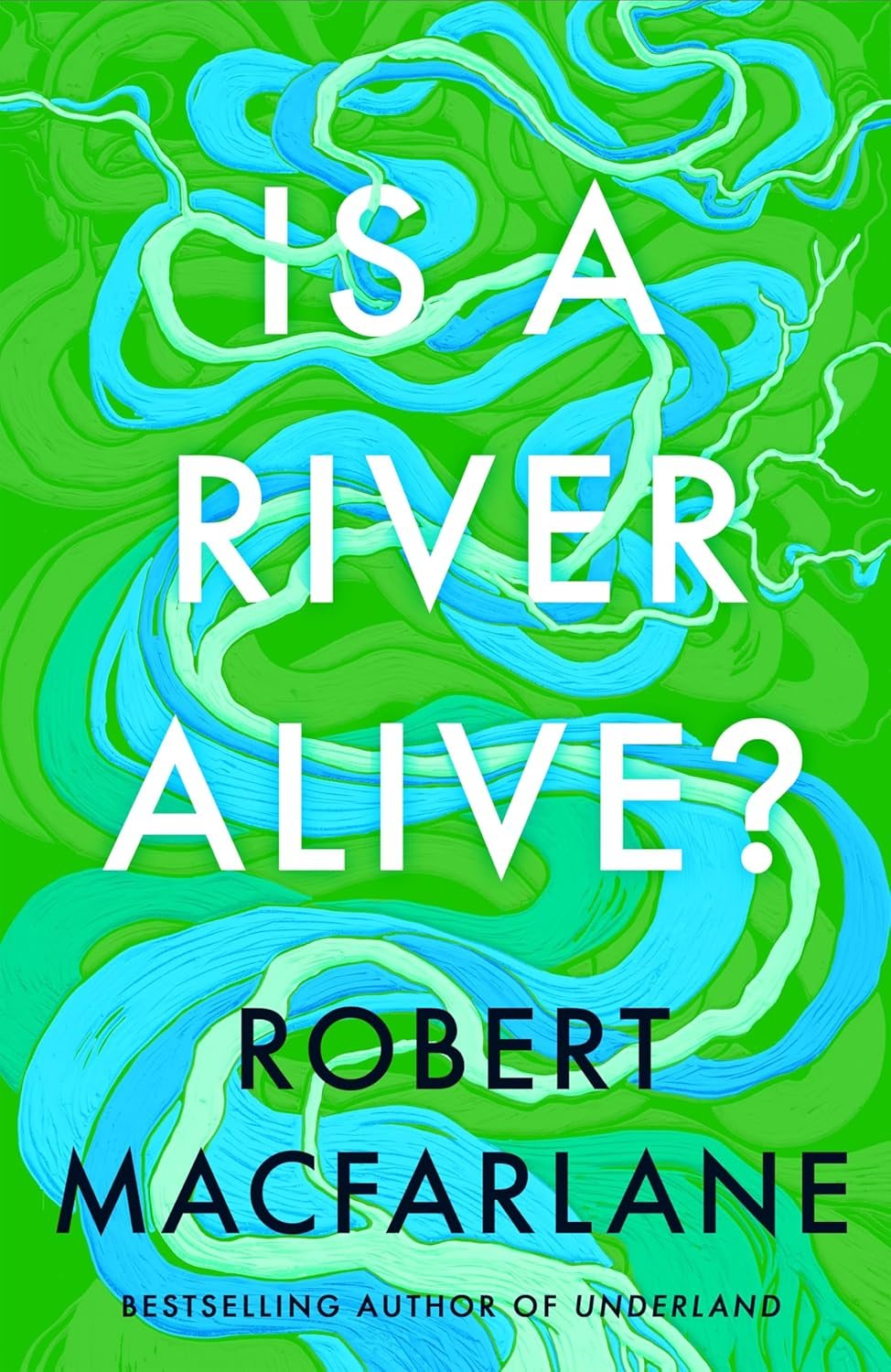
Is a River Alive? is a joyful, mind-expanding exploration of an ancient, urgent idea: rivers are living beings who should be recognized as such in imagination and law. Macfarlane takes readers on three journeys teeming with extraordinary people, stories, and places: to the miraculous cloud-forests and mountain streams of Ecuador, to the wounded creeks and lagoons of India, and to the spectacular wild rivers of Canada–imperiled respectively by mining, pollution, and dams. Braiding these journeys is the life story of the fragile chalk stream a mile from Macfarlane’s house, a stream who flows through his own years and days. Is a River Alive? will open hearts, challenge perspectives, and remind readers that their fate flows with that of rivers–and always has.
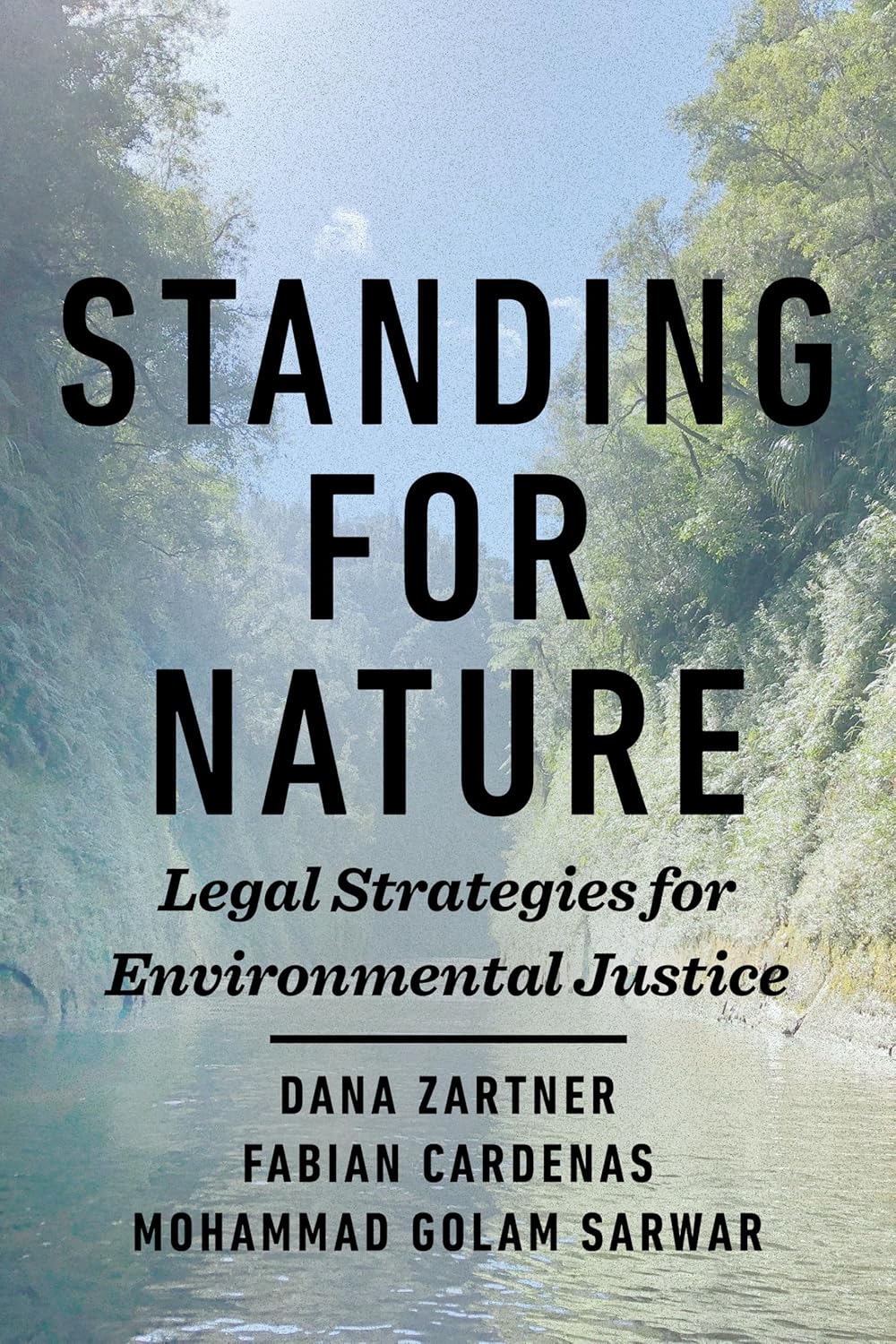
Standing for Nature: Legal Strategies for Environmental Justice
Dana Zartner, Fabian Cardenas, Mohammad Golam Sarwar
Island Press
2025
This book explores the growing importance of Rights of Nature laws in addressing environmental injustice. Examining case studies from New Zealand, Colombia, Bangladesh, and the U.S., it offers a blueprint for creating and safeguarding these laws. It highlights strategies for successful implementation, shifting perspectives on the human-nature relationship, and advancing environmental protections through judicial, legislative, and regulatory processes.
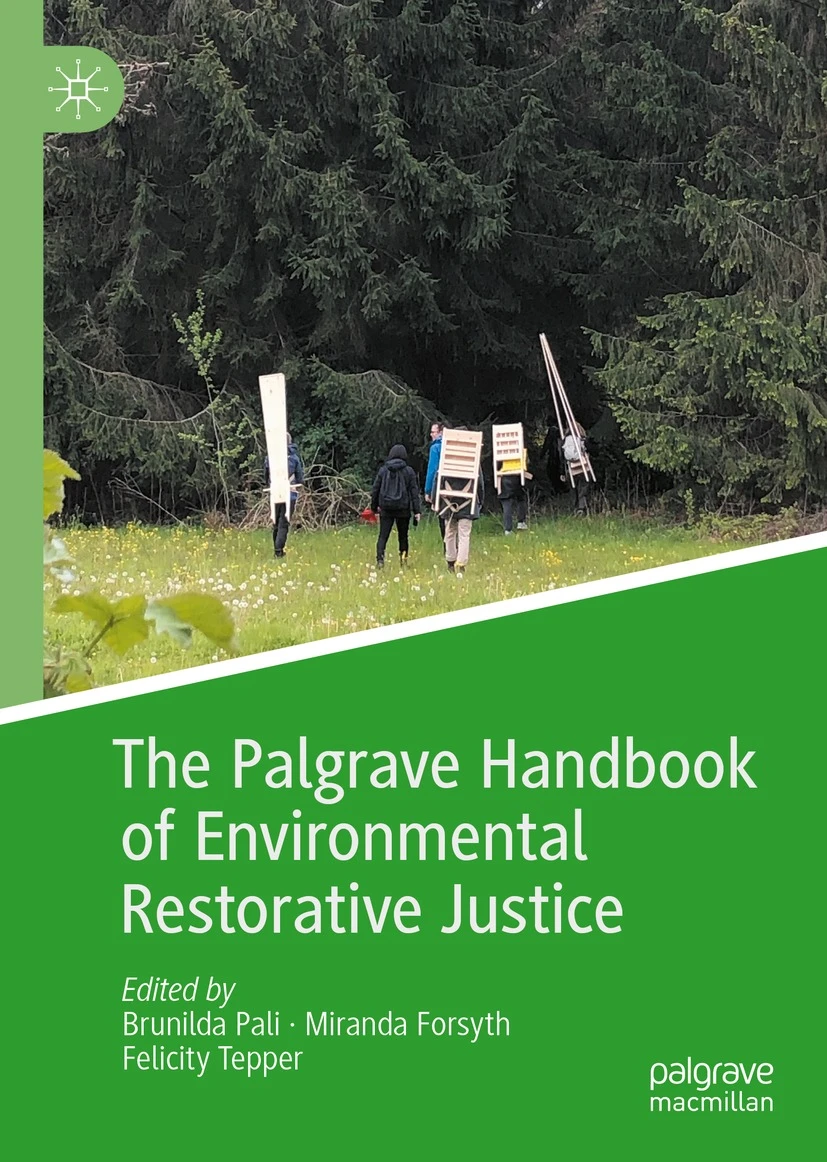
The Palgrave Handbook of Environmental Restorative Justice
Brunilda Pali, Miranda Forsyth, Felicity Tepper
Springer
2022
This handbook explores how restorative justice can address environmental harm. It discusses incorporating the voices of future generations, nature, and non-human entities, while also engaging with Earth jurisprudence. Case studies from various countries highlight the role of relational, restorative practices in healing, accountability, and repair, offering solutions for diverse environmental issues.
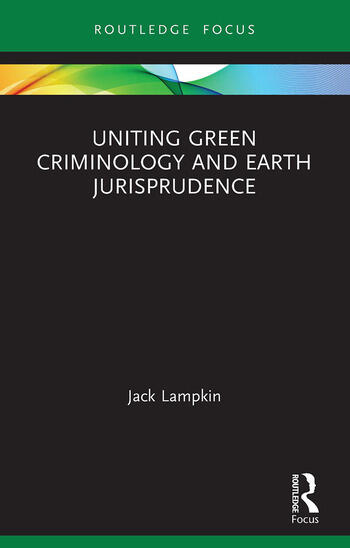
While the areas of green criminology and Earth jurisprudence can be seen as sub-disciplines of their parent subjects, law and criminology, this book seeks to unite green criminology and Earth jurisprudence in an effort to find solutions to the extraordinary environmental problems that the world now faces.
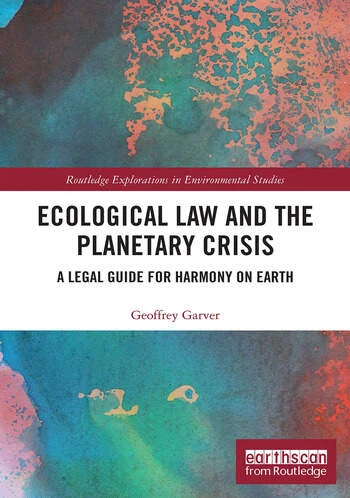
Ecological Law and the Planetary Crisis: A Legal Guide for Harmony on Earth
Geoffrey Garver
Routledge
2021
This book uses a transdisciplinary systems approach to explore the origins of Earth’s human-caused environmental crises and proposes a new legal approach, ecological law, as a solution. The book also provides a systems-based analytical tool to guide the transition from environmental law to ecological law, supporting long-term ecological balance and societal well-being.
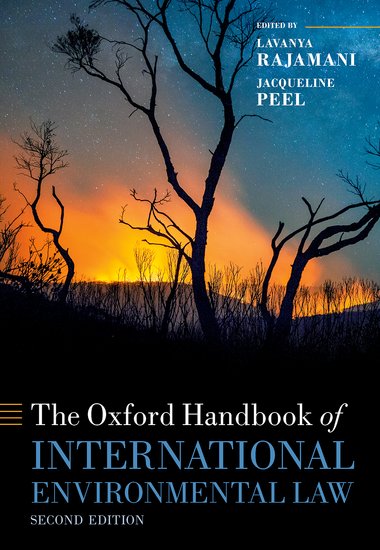
The Oxford Handbook of International Environmental Law
Lavanya Rajamani, Jacqueline Peel
Oxford University Press
2021
This handbook offers a comprehensive overview of international environmental law, covering principles, actors, and sub-fields like climate, oceans, and biodiversity law. It explores intersections with trade, migration, and human rights, while situating the field within science, ethics, and economics. It also addresses emerging issues, including Earth jurisprudence and diverse global perspectives.
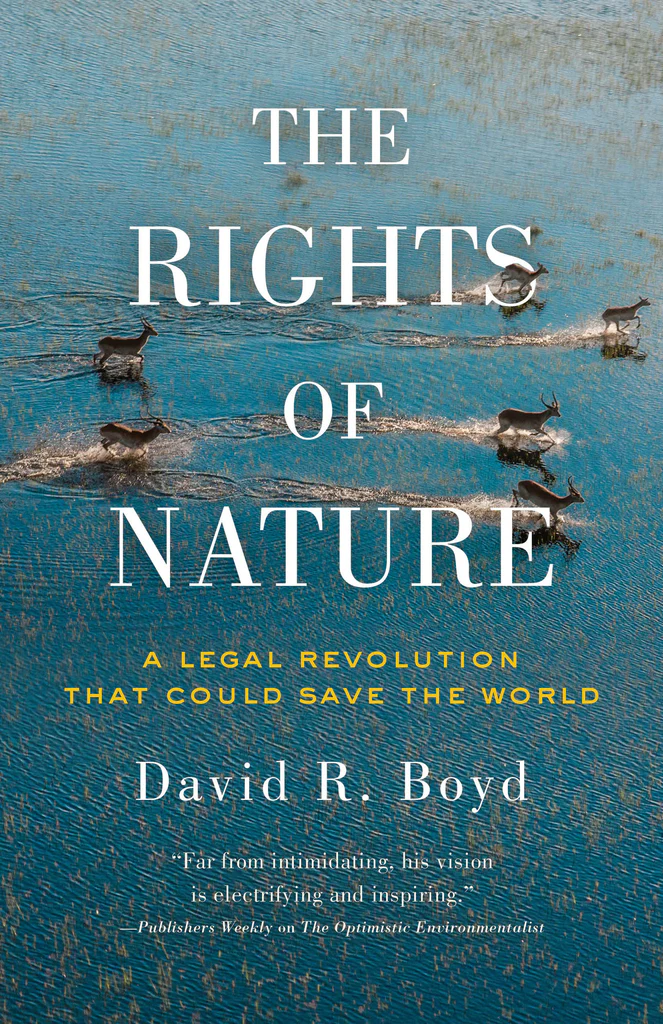
This book discusses the global movement recognizing legal rights for ecosystems and endangered species. From chimpanzees in captivity to the legal rights of birds and lions in Hawaii and India, it highlights how laws are evolving to protect nature. This transformative approach emphasizes human responsibility in safeguarding the planet’s species and ecosystems.
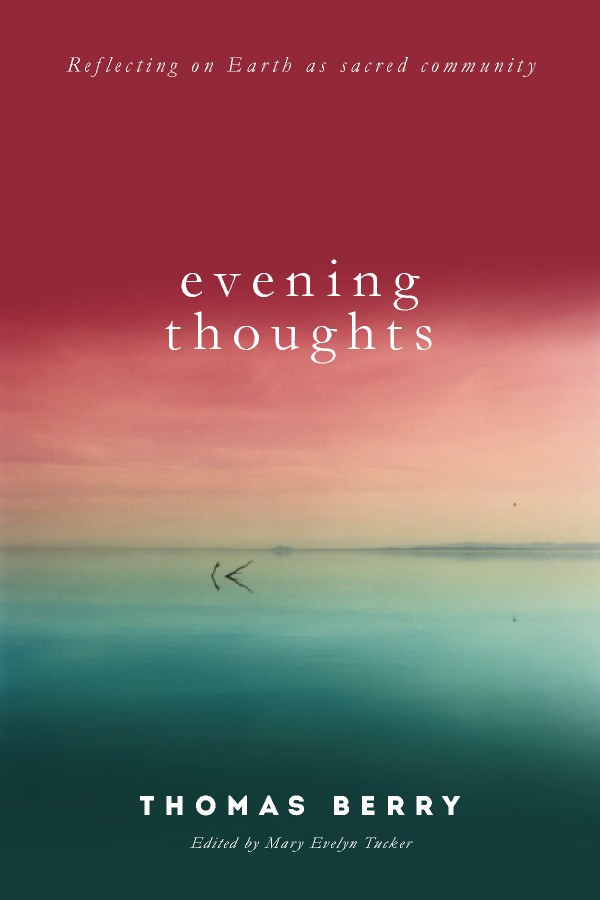
Evening Thoughts: Reflecting on Earth as Sacred Community
Thomas Berry
Mary Evelyn Tucker
Counterpoint Press
2015
Among the contemporary voices for the Earth, none resonates like that of noted cultural historian Thomas Berry. His teaching and writings have inspired a generation’s thinking about humankind’s place in the Earth Community and the universe, engendering widespread critical acclaim and a documentary film on his life and work. This collection of essays, from various years and occasions, expands and deepens ideas articulated in his earlier writings and also breaks new ground. Berry opens our eyes to the full dimensions of the ecological crisis, framing it as a crisis of spiritual vision. Applying his formidable erudition in cultural history, science, and comparative religions, he forges a compelling narrative of creation and communion that reconciles modern evolutionary thinking and traditional religious insights concerning our integral role in Earth’s society. While sounding an urgent alarm at our current dilemma, Berry inspires us to reclaim our role as the consciousness of the universe and thereby begin to create a true partnership with the Earth Community. With Evening Thoughts, this wise elder has lit another beacon to lead us home. Originally published in 2006 from Sierra Club Books.
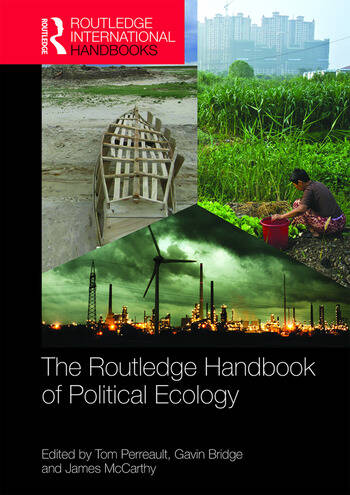
The Routledge Handbook of Political Ecology
Tom Perreault, Gavin Bridge, James McCarthy
Routledge
2015
This handbook offers a comprehensive overview of political ecology, an interdisciplinary field at the intersection of geography, anthropology, sociology, and environmental history. With contributions from over 50 scholars, it covers the field’s origins, core concerns, ethics, methods, and emerging debates, making it a key resource for advanced students and scholars in environmental politics and related disciplines.
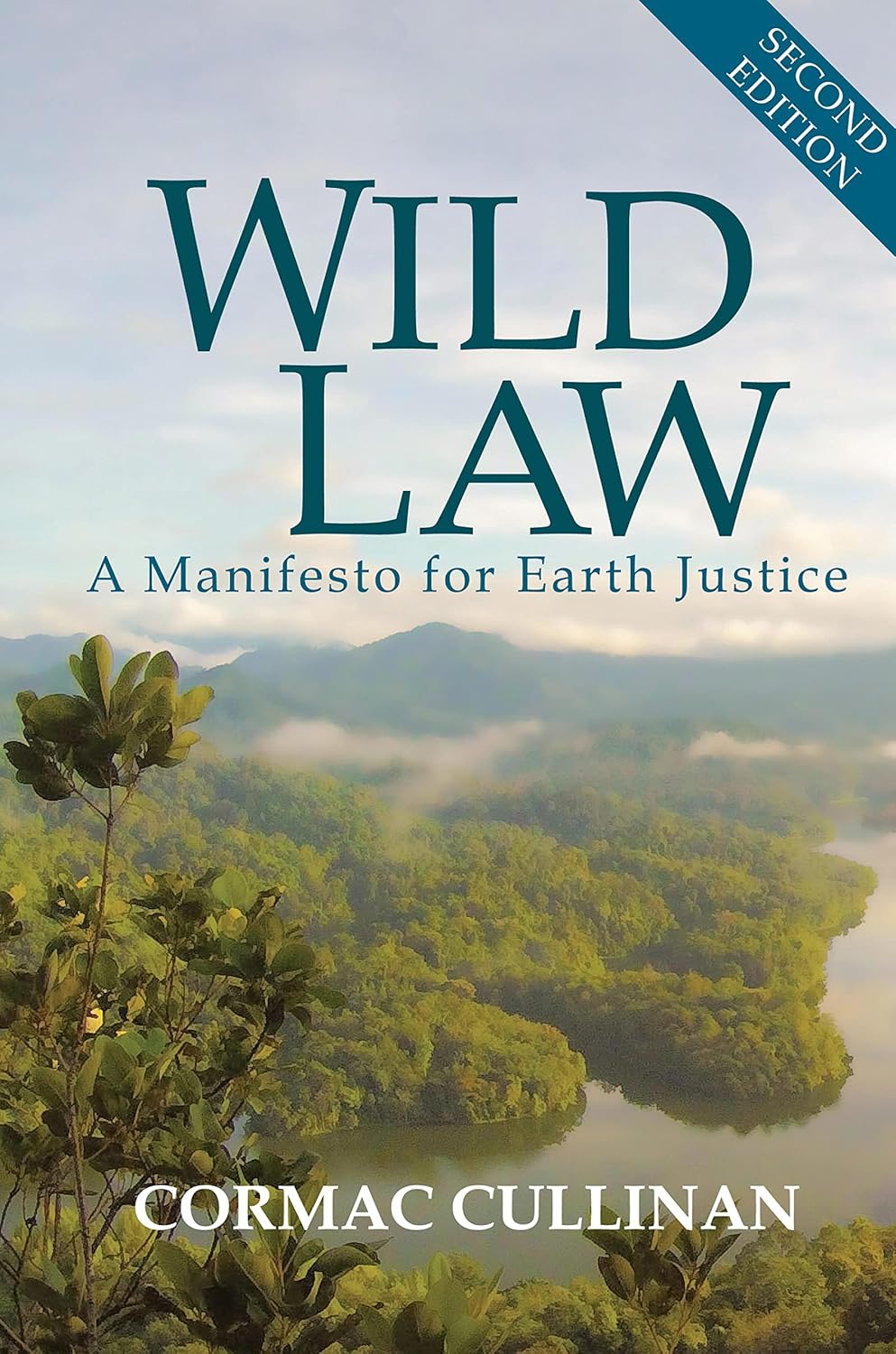
Wild Law: A Manifesto for Earth Justice
Cormac Cullinan
Bloomsbury Publishing [Siber Ink, 2002]
2011 (Second edition)
With a foreword by Thomas Berry, this book proposes recognizing natural communities and ecosystems as legal persons with legal rights. The book explains the concept of wild law, or human laws that are consistent with Earth jurisprudence.
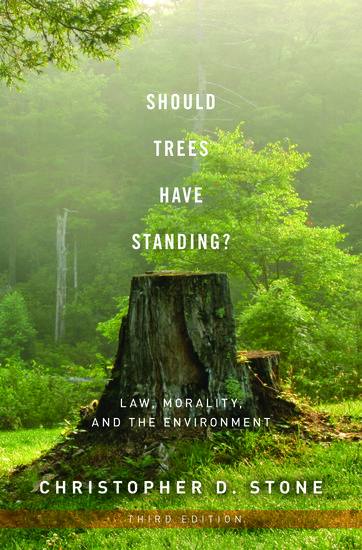
Should Trees Have Standing? Law, Morality, and the Environment
Christopher D. Stone
Oxford University Press [Southern California Law Review, 1972]
2010 (Third edition)
Originally published in 1972, Should Trees Have Standing? launched a worldwide debate on the basic nature of legal rights. Stone’s work continues to serve as a defining statement as to why trees, oceans, animals, and the environment as a whole should be bestowed with legal rights, so that the voiceless elements in nature are protected for future generations.
Photo Credit: Simon Berger/Unsplash